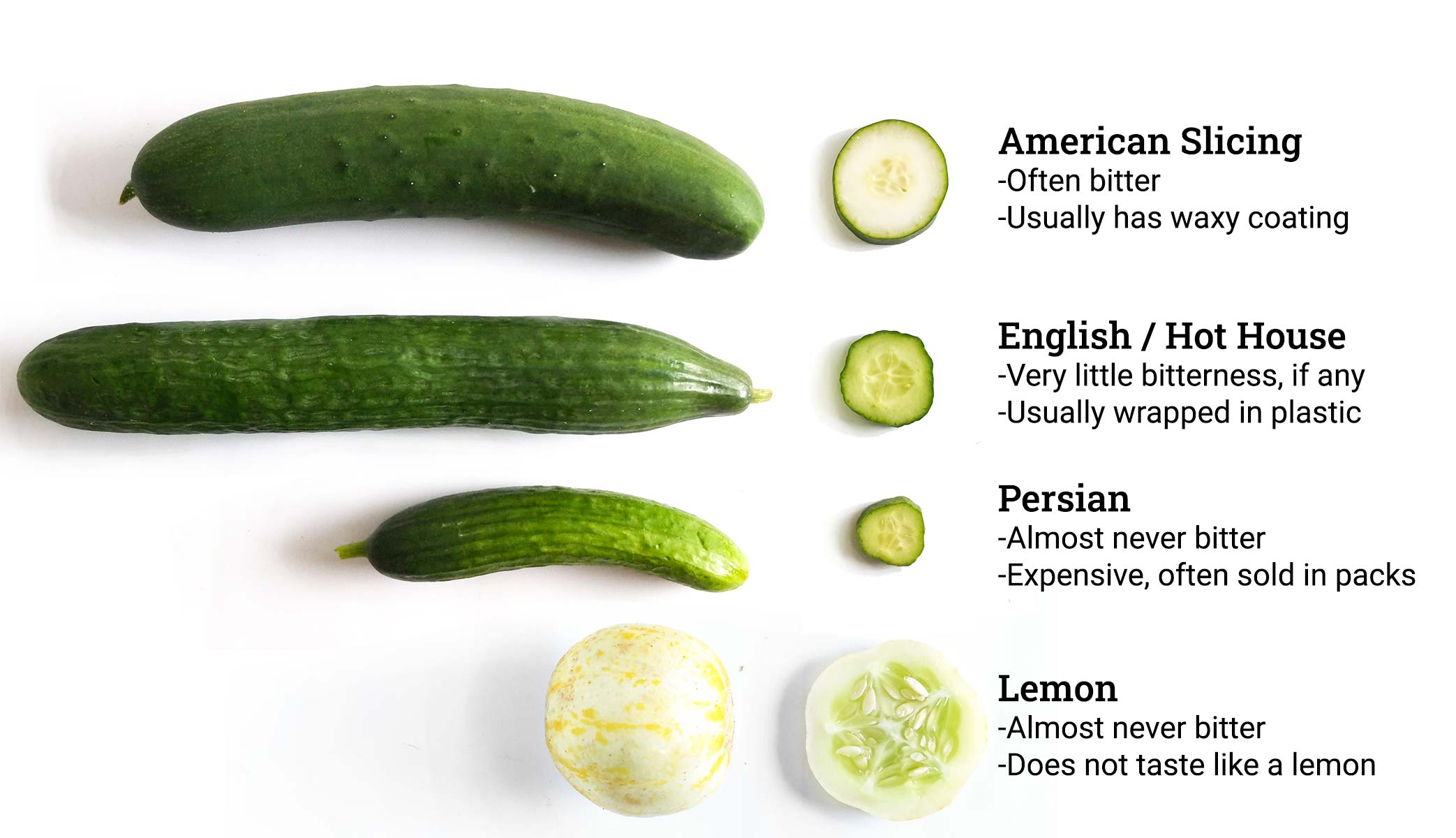To prevent bitter cucumbers, ensure consistent watering and provide adequate sunlight. To fix bitterness, peel and remove seeds.
Cucumbers are a refreshing addition to many dishes. Bitter cucumbers can ruin the taste of your salads and snacks. Bitter cucumbers result from stress factors like inconsistent watering, high temperatures, or inadequate sunlight. Ensuring your plants receive regular watering and plenty of sunshine can help prevent bitterness.
If you already have bitter cucumbers, peeling the skin and removing the seeds can often reduce the bitterness. By following these simple steps, you can enjoy crisp, delicious cucumbers in your meals.

Credit: www.youtube.com
Causes Of Bitter Cucumbers
Many gardeners face the problem of bitter cucumbers. Understanding the causes can help prevent this issue. Bitter cucumbers can spoil your salad and waste your hard work.
Genetic Factors
Genetics play a big role in cucumber bitterness. Some cucumber varieties are more prone to bitterness. Choose seeds that are labeled as non-bitter. This simple step can save you from bitter cucumbers.
Environmental Stress
Environmental factors can cause cucumbers to become bitter. Stress from heat, drought, or poor soil can affect the taste. Make sure your cucumbers get enough water. Use mulch to retain moisture in the soil.
Plant cucumbers in well-drained soil. Avoid planting too close together. This ensures each plant gets enough nutrients and water.
| Environmental Factor | Solution |
|---|---|
| Heat Stress | Provide shade during the hottest part of the day. |
| Drought | Water cucumbers regularly and deeply. |
| Poor Soil | Add compost to enrich the soil. |
Selecting The Right Varieties
Choosing the right cucumber varieties is key to preventing bitterness. Some types are more resistant to bitter compounds. Let’s explore the best options.
Bitter-free Varieties
Some cucumber varieties are naturally less bitter. These are perfect for a sweet, crisp taste. Here are some popular options:
- Marketmore 76 – Known for its consistent sweetness.
- Diva – Popular for its smooth texture and mild flavor.
- Sweet Slice – Offers a tender, non-bitter bite.
- Burpless – Ideal for those sensitive to bitterness.
Heirloom Vs. Hybrid
Understanding the difference between heirloom and hybrid cucumbers can help you select the best variety.
| Feature | Heirloom | Hybrid |
|---|---|---|
| Genetics | Unchanged for many generations. | Crossbred for specific traits. |
| Bitterness | May vary in bitterness. | Engineered to be less bitter. |
| Flavor | Rich, complex flavors. | Consistent, mild flavors. |
| Growth | Open-pollinated. | More resilient. |
Choose hybrids for more reliable, bitter-free cucumbers. Heirlooms offer unique flavors but can be unpredictable. Select the type that best suits your taste and needs.
Optimal Growing Conditions
Ensuring optimal growing conditions is crucial for preventing bitter cucumbers. From soil preparation to the ideal climate, each step contributes to the flavor and quality of your cucumbers.
Soil Preparation
Healthy soil is key to growing tasty cucumbers. Start by testing your soil to ensure it has the right pH level. Cucumbers thrive in soil with a pH between 6.0 and 6.8.
Use organic matter to enrich the soil. Add compost or well-rotted manure to provide essential nutrients. This helps the cucumbers grow strong and healthy.
Ensure good drainage. Waterlogged soil can lead to root rot, affecting the plant’s health. Create raised beds or use well-draining soil to prevent this issue.
Ideal Climate
Cucumbers need the right climate to grow well. They prefer warm temperatures. The ideal temperature range is between 70°F and 85°F.
Plant cucumbers after the last frost. Cold weather can stress the plants and cause bitterness.
Provide consistent moisture. Cucumbers need regular watering, especially during dry spells. Use a drip irrigation system or water the plants deeply once a week.
Ensure adequate sunlight. Cucumbers need at least 6 hours of direct sunlight each day. Choose a sunny spot in your garden for planting.
| Factor | Optimal Condition |
|---|---|
| Soil pH | 6.0 – 6.8 |
| Temperature | 70°F – 85°F |
| Watering | Consistent, deep watering |
| Sunlight | At least 6 hours per day |
By following these guidelines, you can ensure your cucumbers grow in the best conditions. This will help prevent bitterness and result in delicious, crisp cucumbers.
Proper Watering Techniques
Watering cucumbers correctly ensures they grow healthy and taste sweet. Bitter cucumbers often result from improper watering. Let’s explore the best watering practices.
Consistent Moisture
Cucumbers need consistent moisture to thrive. Irregular watering leads to stress. This stress causes bitterness. Water your cucumbers regularly.
- Check soil moisture daily.
- Water cucumbers deeply.
- Use a soaker hose.
- Mulch to retain soil moisture.
Avoid Overwatering
Too much water harms cucumbers. It can cause root rot. Ensure proper drainage in your garden.
- Water only when the top inch of soil is dry.
- Do not let cucumbers sit in water.
- Space plants for good air circulation.
| Watering Tips | Benefits |
|---|---|
| Check soil moisture daily | Prevents stress and bitterness |
| Use a soaker hose | Ensures deep watering |
| Mulch the soil | Retains moisture |
| Ensure proper drainage | Prevents root rot |
Nutrient Management
Proper nutrient management is key to preventing and fixing bitter cucumbers. Nutrients help cucumbers grow healthy and tasty. Understanding how to manage these nutrients can make a big difference.
Balanced Fertilization
Cucumbers need a balance of nutrients. Too much or too little can cause bitterness. A balanced fertilization plan ensures cucumbers get what they need.
| Nutrient | Role |
|---|---|
| Nitrogen | Promotes leafy growth |
| Phosphorus | Enhances root development |
| Potassium | Improves fruit quality |
Use a balanced fertilizer. Look for ratios like 10-10-10 or 5-5-5. These numbers show the amounts of nitrogen, phosphorus, and potassium.
Essential Nutrients
Cucumbers need some essential nutrients to avoid bitterness. Here are the most important ones:
- Calcium: Prevents blossom end rot.
- Magnesium: Helps with photosynthesis.
- Boron: Assists in cell wall formation.
These nutrients should be in the soil. Test your soil to know what’s missing. You can add these nutrients through fertilizers or compost.

Credit: www.youtube.com
Pest And Disease Control
Preventing and fixing bitter cucumbers involves effective pest and disease control. Pests and diseases can stress cucumber plants. This stress results in bitter fruit. By controlling pests and diseases, you ensure healthy and tasty cucumbers.
Common Pests
Cucumbers are prone to several common pests. Here are the main ones:
- Aphids: Tiny insects that suck sap from plants.
- Cucumber Beetles: Yellow and black beetles that chew on leaves.
- Spider Mites: Small mites that create webs and damage leaves.
- Whiteflies: Small white insects that feed on plant sap.
Preventive Measures
Implementing preventive measures helps keep pests at bay. Here are some key strategies:
- Regular Inspection: Check plants for signs of pests weekly.
- Companion Planting: Plant marigolds to repel pests naturally.
- Neem Oil: Use neem oil to deter and kill pests.
- Watering Techniques: Water at the base to avoid wet leaves.
- Clean Garden: Remove weeds and debris that harbor pests.
| Pest | Preventive Measure |
|---|---|
| Aphids | Spray with soapy water |
| Cucumber Beetles | Use row covers |
| Spider Mites | Introduce ladybugs |
| Whiteflies | Use yellow sticky traps |
By following these steps, you can control pests. This ensures your cucumbers stay healthy and taste delicious.
Harvesting At The Right Time
Harvesting cucumbers at the right time is key to avoiding bitterness. Timing is everything when it comes to getting the perfect cucumber. Let’s dive into the signs of ripeness and how to avoid over-maturity.
Signs Of Ripeness
Knowing when cucumbers are ripe is crucial. Look for these signs:
- Color: A ripe cucumber is bright green.
- Size: Most cucumbers are ready at 6-8 inches.
- Texture: The skin should be firm, not soft.
If the cucumber feels hollow, it’s overripe. Taste can also be a good indicator. A ripe cucumber tastes fresh and mild.
Avoiding Over-maturity
Over-mature cucumbers are often bitter. Follow these tips to avoid this:
- Check Daily: Cucumbers grow fast. Check them every day.
- Pick Regularly: Harvest cucumbers every 2-3 days.
- Use a Sharp Knife: Cut the cucumber off the vine. Don’t pull or twist.
Keeping track of your cucumber plants helps. Use a garden journal to note when you planted and harvested.

Credit: askthefoodgeek.com
Fixing Bitter Cucumbers
Fixing bitter cucumbers can save your salads and dishes. Bitter cucumbers can ruin your meals. Learn how to fix them easily.
Peeling And Seeding
Peeling cucumbers can remove bitterness. The skin often holds the bitter taste. Use a peeler to remove all the skin. Next, cut the cucumber in half lengthwise. Scoop out the seeds with a spoon. Seeds can also be bitter. Removing them helps reduce the bitter taste.
Culinary Techniques
Various cooking methods can mask bitterness. Here are some techniques:
- Salting: Sprinkle salt on cucumber slices. Let them sit for 30 minutes. Rinse off the salt before using.
- Soaking in Water: Soak cucumber slices in cold water. Let them sit for an hour. This can reduce bitterness.
- Marinating: Use lemon juice or vinegar. Marinate the cucumbers for a tangy taste.
- Cooking: Cooking cucumbers can lessen bitterness. Try grilling, roasting, or stir-frying.
Using these methods can make cucumbers more enjoyable. Don’t let bitterness ruin your meals.
Frequently Asked Questions
Why Are My Cucumbers Bitter?
Cucumbers can become bitter due to stress factors like irregular watering, extreme temperatures, or poor soil conditions. These factors increase the concentration of cucurbitacins, compounds responsible for bitterness.
How Do I Prevent Bitter Cucumbers?
To prevent bitterness, ensure consistent watering, provide mulch, and maintain optimal growing conditions. Choose bitter-resistant cucumber varieties and harvest them early to avoid over-maturity.
Can Bitter Cucumbers Be Fixed?
Yes, you can fix bitter cucumbers by peeling them and removing the ends. The bitterness is often concentrated in the skin and stem areas.
What Are Bitter-resistant Cucumber Varieties?
Bitter-resistant cucumber varieties include ‘Marketmore,’ ‘Sweet Success,’ and ‘Lemon Cucumber. ‘ These varieties are bred to have lower levels of cucurbitacins, reducing bitterness.
Conclusion
A healthy garden can yield sweet, delicious cucumbers with the right care. Regular watering and avoiding heat stress are crucial. Harvest cucumbers promptly to prevent bitterness. Implementing these tips ensures a bountiful, tasty harvest. Enjoy fresh, crisp cucumbers straight from your garden, enhancing your meals naturally.
